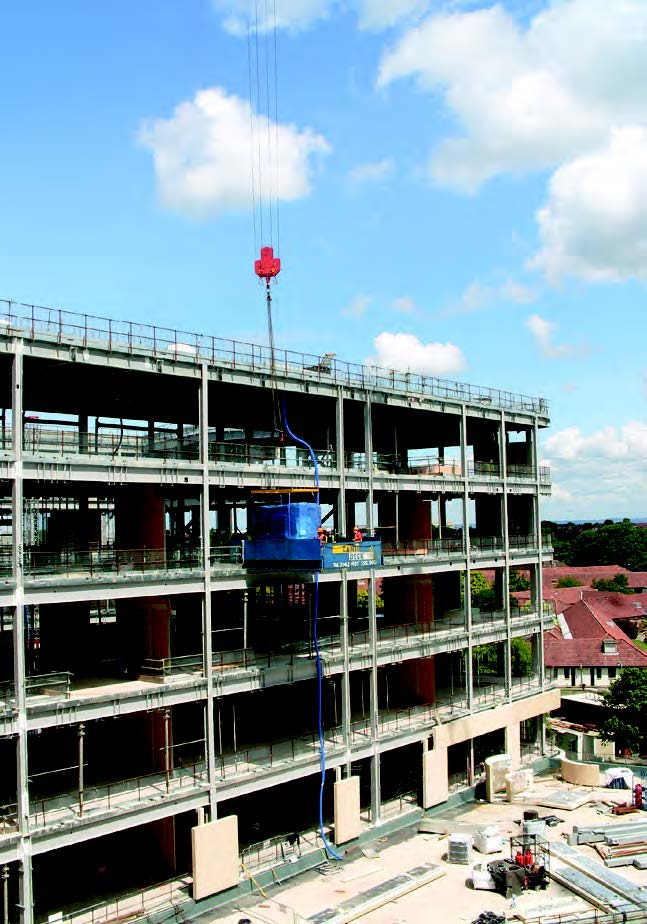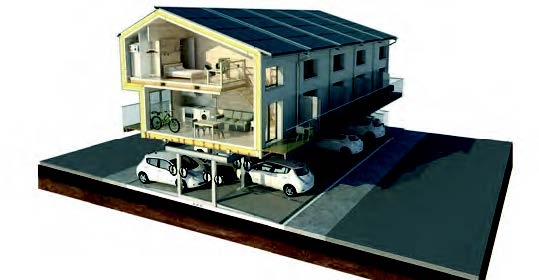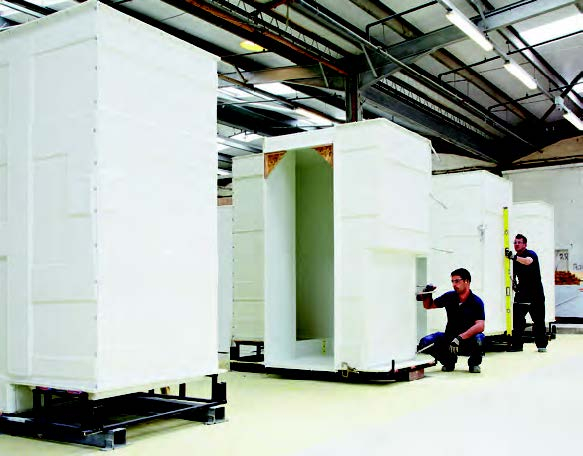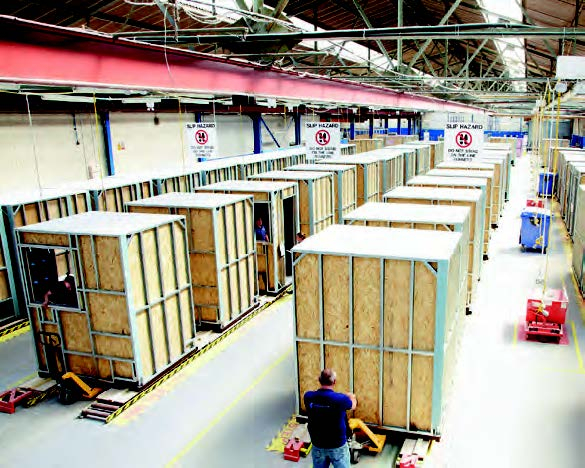
Modular pods are becoming increasingly popular construction solutions within the healthcare sector, meeting the need for additional capacity, speed and efficiency.
More modern construction methods, particularly mobile and modular buildings, have grown exponentially in healthcare over recent years. They offer much-quicker build times, improving energy efficiency, and enhance the patient and staff experience.
Pod solutions– the latest trend
These purpose-built ‘extensions’ enable healthcare organisations to increase capacity or improve their estates quickly.
Currently, they are mainly providing additional washroom environments in line with privacy and dignity and male-female accommodation guidelines. (But the healthcare sector is actually not as advanced in its use of bathroom pods as sectors such as residential and student accommodation).
The pods can be used for both new-build and refurbishment projects provided there is sufficient access for installation.
Services such as drainage, particularly for level-access floors, also have to be configured to allow for pods, if work on site is to be minimised.
Multiple benefits
Stephen Wade-Palmer, specification manager at Offsite Solutions, explains how speed and efficiency savings are achieved:
“By moving bathroom construction offsite, the number of activities and trades on site is radically reduced from around seven different trades and up to 14 operations to a single supplier.
“This is an important benefit for hospital sites, which are often very constrained and located in heavily-built-up areas. There is much less disruption, with reduced work on site, fewer vehicle movements, and health and safety is easier to manage.”
Bathroom pod technologies
Recent innovations include floorless pods; concrete-based pods for high-specification wetrooms; and demountable GRP pods which can be used for hospital refurbishments that may not have access for full-sized pods.
“Key to design,” said Wade-Palmer, “is that bathroom pods for healthcare environments need to be robust and easy to clean for infection control and so they are either steel-framed with hygienic walls or GRP composite pods.”
The value of early engagement
“Contractors and specifiers need to engage with the pod manufacturer at an early stage in the design process to make the use of offsite construction viable for bathrooms. This reduces the likelihood of access issues at the installation and service connection phases and will minimise the number of variations in design and layout to better suit offsite manufacture” said Wade-Palmer.
He added, “Trusts also need to realise the significant benefits that can be achieved. Repeat designs for bathroom pods are more efficient and cost effective.”




CPD training programme for bathroom pods
Offsite Solutions has launched the only RIBA-accredited CPD training seminar entitled ‘Modular bathroom pods –what, why and where?
All aspects of bathroom pod specification are examined to help architects and healthcare estates professionals design and procure factory-built bathrooms, ensuite shower rooms, and wetrooms more effectively.
It looks at how to get the best out of this type of offsite construction and the latest innovations and technical advancements in pod technology.
Pod housing for nurses and other health and care staff
ZEDpods recently announced the launch of a new solution which creates affordable houses for keyworkers close to hospitals and public transport links.
It works by separating housing provision from land prices using existing air rights over car parks, thus taking the cost of land out of the equation.
Revenue is also generated. While car parks continue to function, the properties can generate long-term revenue without NHS trusts having to sell off valuable real estate to build staff housing.
Pod housing for patients
The concept could also resolve step-down care accommodation shortages, with blocks of ZEDpod units being used for patient accommodation – helping to solve the 2.3 million delayed bed days experienced by the NHS in 2016 and 2017.
“For patients that are medically fit for discharge with no clinical need to remain in bed, or for those that await assessment of continuing care needs or follow-up treatment, ZEDpods would be a viable solution,” said a spokesman for the company.
“As these could be located over existing hospital car parks, ward space would be saved.”
To ensure easy access, ZEDpod housing can be connected via a bridge from existing buildings, with a lift and staircase added.
Taking just three months to build, and developed to higher standards than conventional homes; they are constructed from fireproof, durable and robust materials and are designed to last as long as a traditional build.
And, as they generate their own solar power, their low energy needs would help to reduce ongoing estate management costs.
This readily-accessible accommodation might reduce the £173m cost and be more affordable than the ‘Airbnb’-style scheme of hosting patients in homeowners’ spare rooms at a cost of £1,000 a month.
Looking to the future
Wade-Palmer said he expects pod designs to further evolve to meet more-specialist needs.
He told hdm: “We anticipate the demand for pods for mental health schemes will increase and we will have an extensive range of specialist equipment for enhanced patient safety which includes anti-ligature fixtures and fittings.
“We can also provide factory-built bathrooms and ensuite shower rooms for medium-secure units which would typically be GRP composite pods.
“For Warden-assisted supported living schemes for the elderly and disabled people will use steel-framed pods with ceramic tiled finishes for a more-residential feel and appearance.”